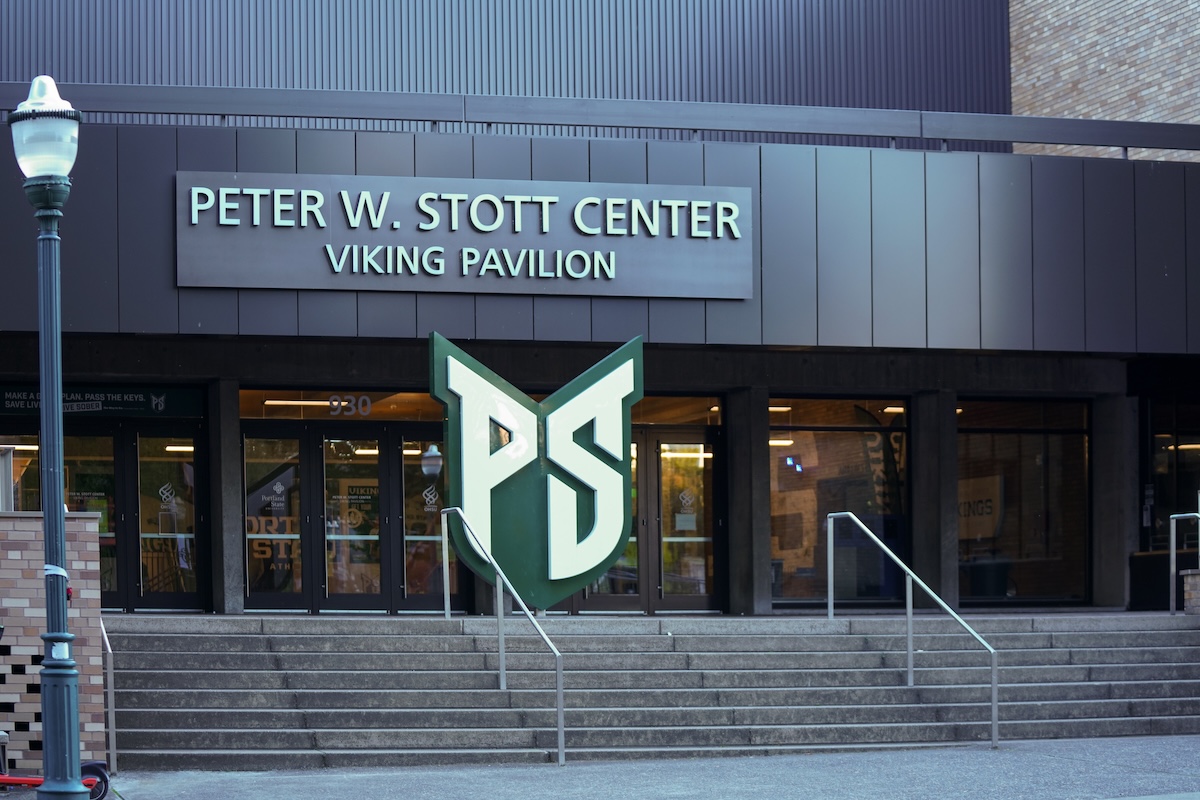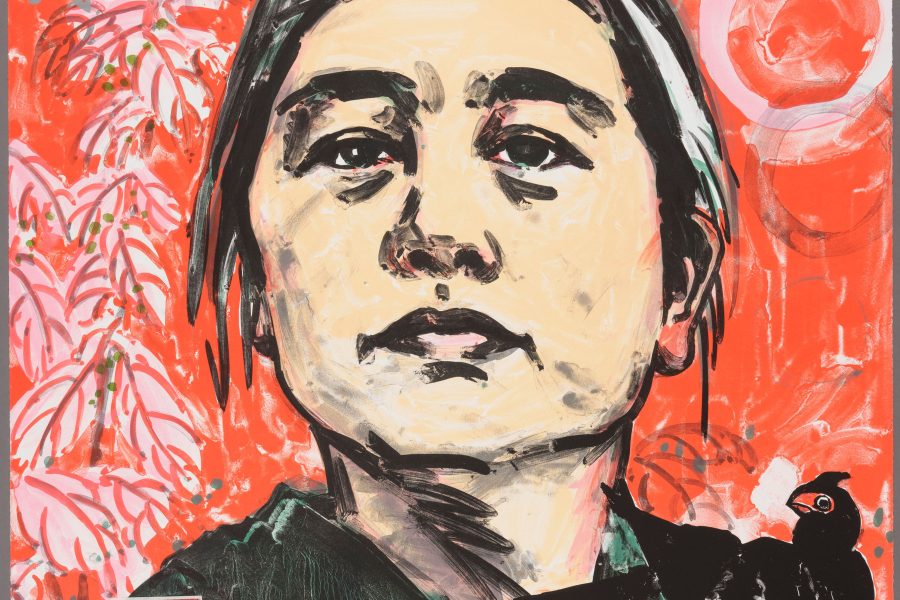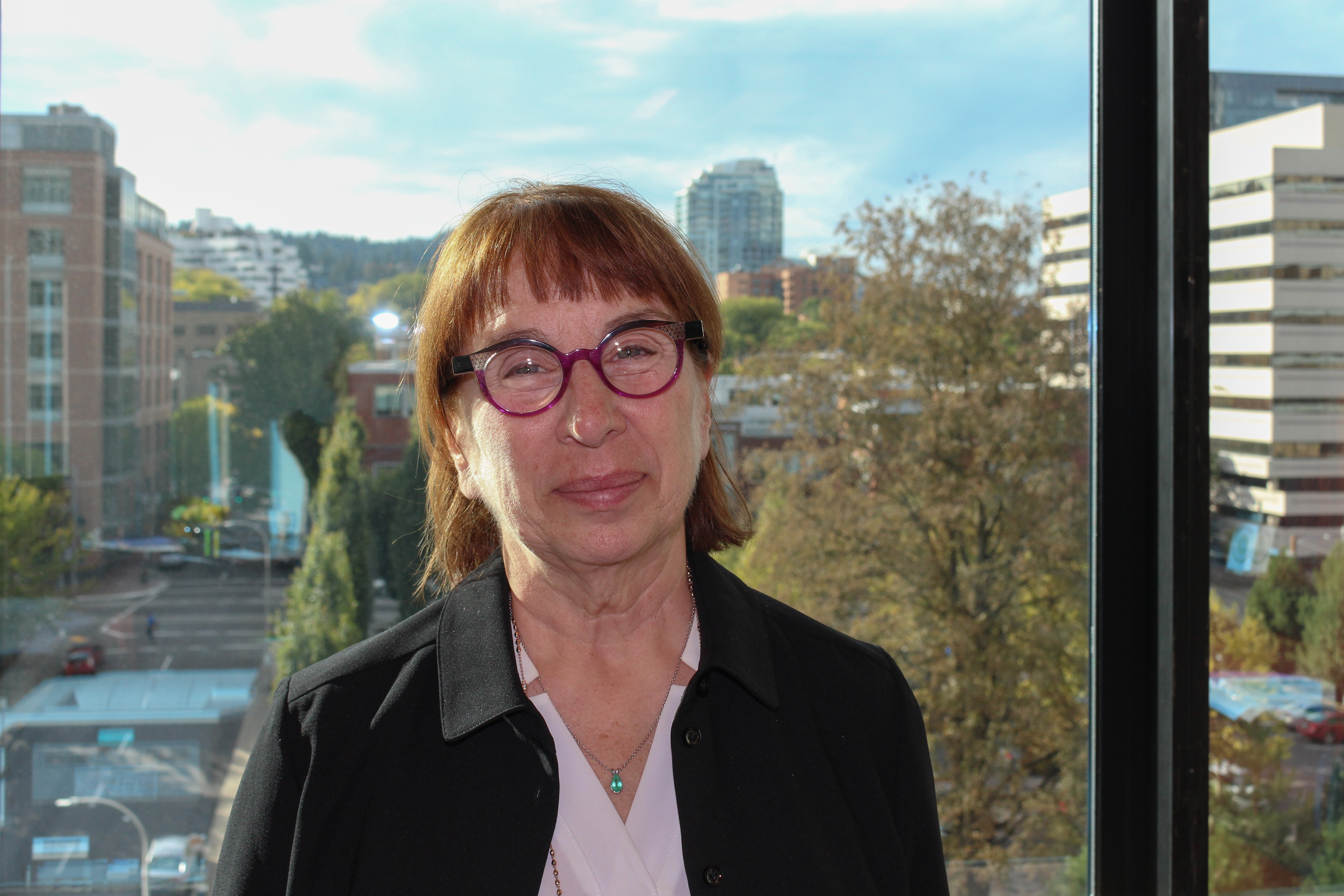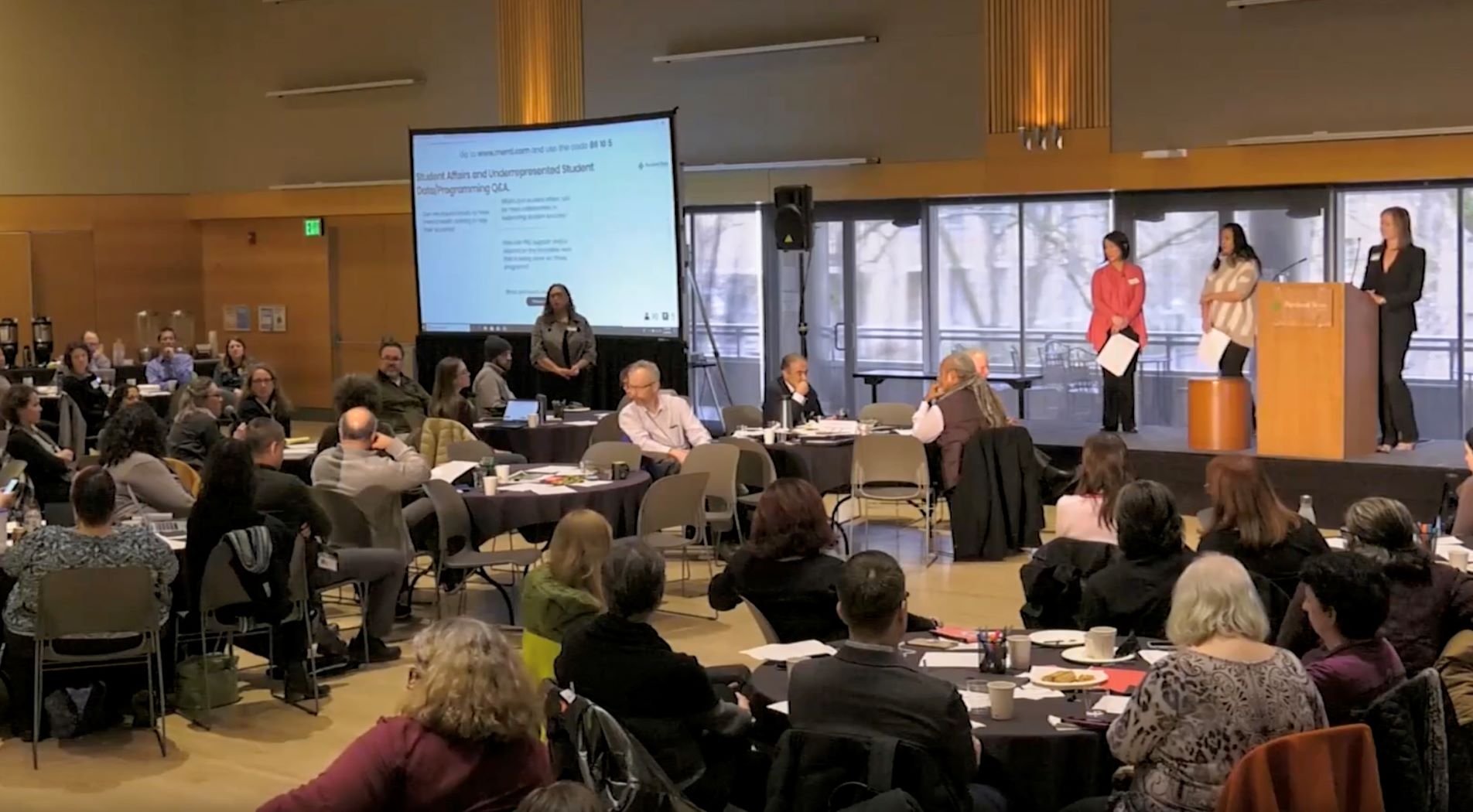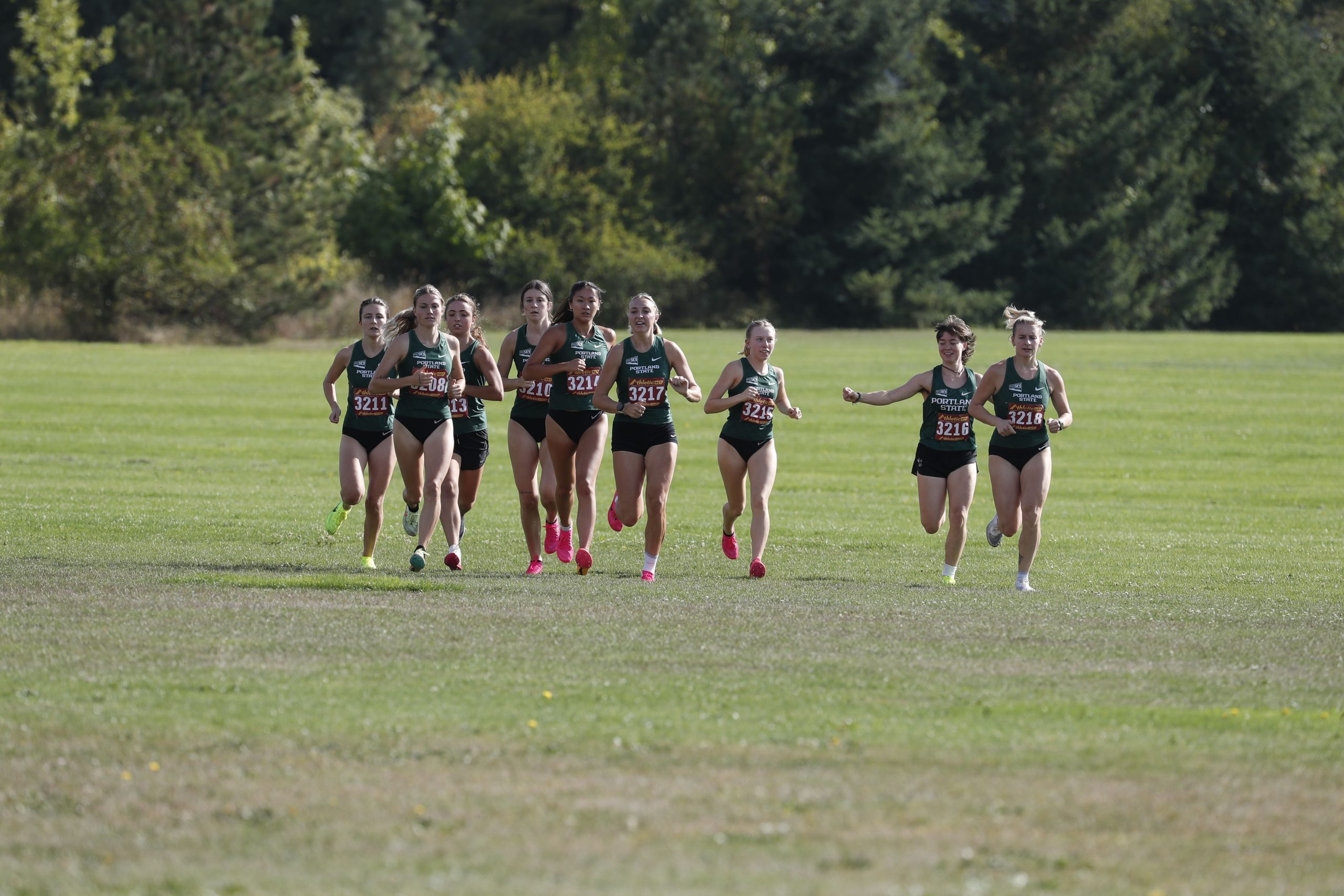Balancing the demands of sports and academics can be challenging, but Portland State student athletes seem to have all the tools they need to succeed. Success stories often begin with unique journeys, and the path to becoming a student-athlete at PSU is no exception.
Libby Bissen—the director of academic services here at PSU—shared her journey as a former student athlete at Lewis & Clark College and her passion for helping student-athletes achieve their academic goals.
“I wanted to stay around athletics—like in the college athletics environment—and [be] really passionate about both academics and the athletics side of things,” Bissen said. “[I wanted] to help the student athletes make the most of their academic experiences and [be] able to support them in their athletics, as well.”
Similarly, Cinco McCartney—a forward for the PSU women’s basketball team—transferred to PSU intending to make the most of her last two years of college.
Having moved from the east coast, McCartney was attracted to PSU’s friendly community and scholarship opportunities. “I lived in Connecticut, and I went to school in Boston,” she said. “I just felt like for my last two years, I needed to take advantage of moving away—like so far away—and essentially doing it for free since I was going to be on scholarship. Well, a lot of people don’t really get the opportunity, and then… when I came on my visit around the coaches and everything, it felt good, felt like it was somewhere I needed to be.” As a transfer student and graduate student, she’s familiar with the challenges and rewards of being a student athlete.
One of the most remarkable aspects of PSU’s student athletes is their ability to balance the rigorous demands of academics and athletics. McCartney provided insight into her daily schedule, revealing a jam-packed routine that includes early morning workouts, practice, class and personal study time.
“I’ll wake up at 5:30 [a.m.],” McCartney said. “I’ll probably try to work out before we have practice. So I’ll work out maybe 7–8 [a.m.]. And then we have practice from 9–11 [a.m.]. Right after I normally come home, I eat, shower. I try to take a nap. And then I just like reading for class. I’m a grad student now, so it’s a lot harder.”
Her commitment to a schedule helps her manage her time effectively, ensuring her academic and athletic responsibilities are met.
Bissen discussed the tailored advising approach PSU employs to meet the diverse needs of student athletes from various sports. “We have one advisor who only works with football, because they are such a big team,” Bissen said. “So we split it up by team[s] in that way, and then we work with the coaches closely to figure out what different teams need in terms of support.”
The academic support system at PSU includes academic advisors, study halls and additional resources. Student athletes receive guidance from their academic advisors and specialized advisors who provide hands-on assistance when needed. “So, you know football is busiest in the fall, so they plan their classes around that,” Bissen said. “They do like a little bit fewer classes in the fall and then they know they can do more in the winter and spring as an example.”
“The schedule—the regimen—has to be right,” McCartney said. “But yeah, it’s definitely jam-packed.”
Bissen discussed initiatives like study hall requirements and academic recognition nights. Study halls provide structured study time, ensuring student athletes are on track with their coursework. “A lot of people don’t know that student athletes have to meet a lot of academic requirements to be eligible for the NCAA,” Bissen said. “So that is something that our office is constantly working on.”
They also hold academic recognition nights to celebrate student athletes and emphasize the importance of balancing academics and athletics successfully. “We do also love to recognize our students who are doing well in their classes,” Bissen said. “Like this year we are doing our academic recognition night at one of the volleyball matches on Oct. 19.”
Student athletes at PSU have consistently earned recognition from the Big Sky All-Academic Team, showcasing their commitment to academic excellence. Additionally, various teams at PSU have received awards for their remarkable team GPAs, exemplifying the collective dedication to academics within the athletic community.
“The Vikings’ women’s indoor track & field team received the most honorees with 16, followed by men’s indoor track & field with nine. Women’s basketball had seven players earn the honor, while men’s basketball had one,” the Big Sky Conference reported.
Achieving academic success as a student athlete comes with its fair share of challenges. One significant challenge is requiring student athletes to meet strict academic criteria to remain eligible for NCAA competition. Bissen highlighted the importance of helping student athletes stay on track with their degree progress, especially when dealing with credit transfers and busy schedules. “I like to be on a set schedule because it helps me with my days,” McCartney emphasized.
McCartney discussed the pressure of competition while maintaining academic excellence. She emphasized the importance of time management and proactive planning to meet academic commitments even during travel. Balancing academics and sports can be demanding, but McCartney’s dedication reflects the commitment of many student athletes at PSU.
Student athletes at PSU excel in the classroom and develop transferable skills which benefit them both academically and athletically. McCartney pointed out that time management skills honed through her athletic pursuits help her manage her academics effectively. The discipline required to balance academics and sports has proven invaluable.
Maintaining motivation is another essential aspect of academic success for student athletes. McCartney finds inspiration in the opportunity to motivate others through her clothing brand—Continued Confidence—which targets mental health and self-confidence. Her commitment to personal growth and motivating those around her is a testament to the culture of support and encouragement at PSU. “I want to give everybody an outlet to just know that they’re enough,” McCartney explained.
One of the aspects student athletes appreciate most about PSU is the sense of family within the athletic community. McCartney highlighted how being part of a team provides a ready-made support system and allows her to form relationships with fellow student athletes from various sports. The shared experiences of balancing academics and athletics create strong camaraderie and mutual support.
One remarkable aspect of PSU’s student athletes is their stellar performance in academics. According to the Collegiate Consulting Report, PSU’s student athletes outperform their full-time undergraduate counterparts, boasting an average GPA of 0.1 points higher. Moreover, their six-year graduation rate is 37% higher than the average full-time undergraduate student at PSU.
Even more impressive is that PSU allocates fewer resources to athletics than the Big Sky Conference average. Despite this, the graduation success rate for PSU student athletes surpasses the conference average, according to the report. For men, 86% of PSU student athletes graduate within six years compared to the mean average of 80%. The numbers are equally impressive for women, with an average of 93% at PSU compared to the conference average of 89%.
This academic excellence may be attributed to the daily rigorous balancing act that student athletes undertake. They dedicate themselves not only to their sports but also to their studies, showcasing the kind of commitment and time-management skills which will serve them well in future endeavors. “The graduation success rate for PSU student athletes also exceeds the conference average,” the report stated.
PSU student athletes also play a vital role in enhancing campus diversity. Data shows that PSU’s student athlete population is more diverse than the full-time undergraduate population. While 49% of full-time undergraduates identify as white, only 38% of student athletes fall into this category. According to the data, “the majority of students identified as ‘non-white.’”
While student athletes make up less than 3% of the total student population, their contribution to campus diversity is notable. They bring unique perspectives and backgrounds which enrich the academic and social environment at PSU.
Participation in PSU Athletics instills habits and skills associated with good sportsmanship, teamwork, health, physical fitness and safety—highly-valued professional qualities. Additionally, student athletes develop social skills, perseverance and a strong work ethic. A recent national Gallup-Purdue Index study of college graduates supports this notion, showing that former student athletes are more likely to thrive over time than their non-student-athlete counterparts.

